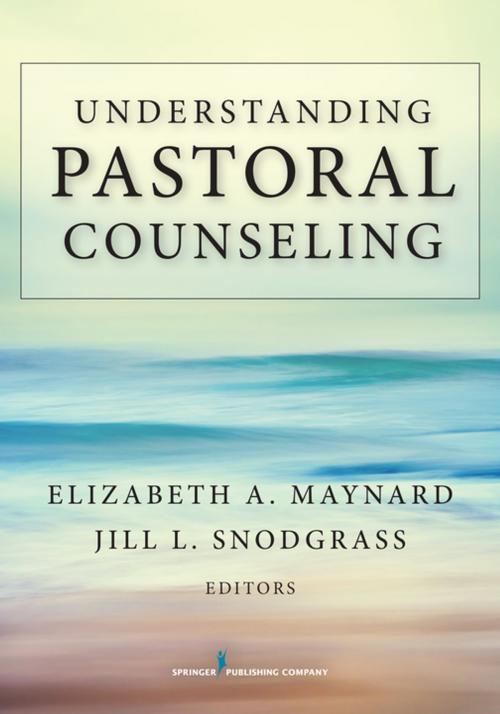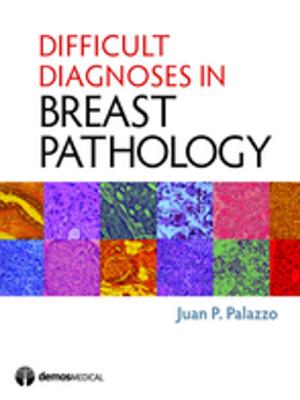Understanding Pastoral Counseling
Nonfiction, Religion & Spirituality, Reference, Psychology of Religion, Inspiration & Meditation, Counseling, Health & Well Being, Psychology, Counselling| Author: | ISBN: | 9780826130068 | |
| Publisher: | Springer Publishing Company | Publication: | June 9, 2015 |
| Imprint: | Springer Publishing Company | Language: | English |
| Author: | |
| ISBN: | 9780826130068 |
| Publisher: | Springer Publishing Company |
| Publication: | June 9, 2015 |
| Imprint: | Springer Publishing Company |
| Language: | English |
What are the roles, functions, and identities of pastoral counselors today? What paradigms shape their understanding of the needs of others? How can pastoral counselors serve the needs of diverse individuals in both religious and secular environments? This foundational text reflects the continued and unfolding work of pastoral counseling in both clinical and traditional ministry settings. It addresses key issues in the history, current practices, and future directions of pastoral counseling and its place among allied helping professions. Written to incorporate current changes in the roles of pastoral counselors and models of training beyond the traditional seminary, the book builds on themes of pastoral counseling as a distinct way of being in the world, understanding client concerns and experiences, and intervening to promote the health and growth of clients.
The text provides a foundational overview of the roles and functions of the modern pastoral counselor. It discusses spiritual perspectives on the issues that bring individuals to seek counseling and integrates them with the perspectives of allied mental health professions. The tools and methods pastoral counselors can employ for spiritual assessment are presented, and the book describes common spiritual and theological themes—both implicit and explicit—that arise in pastoral counseling. Included are chapters examining Christian, Jewish, Islamic, Native American, and Buddhist approaches to counseling as well as counseling individuals with diverse sexual identities. The book reflects the increasing need for pastoral counselors to serve effectively in a multicultural society, including service to individuals who are not affiliated with a specific religious denomination. The book also considers the emerging realities of distance counseling and integrated health care systems as current issues in the field.
KEY FEATURES:
- Presents a contemporary approach to how pastoral counselors function as mental health professionals and spiritual leaders
- Serves as a state-of-the-art foundational text for pastoral counseling education
- Describes assessments and interventions that are shared with allied mental health professionals and those that are unique to pastoral counseling
- Provides an ecumenical and interfaith approach for a multicultural society, including individuals with diverse sexual identities
- Addresses counseling with individuals who do not affiliate with a specific faith tradition
- Includes Instructor's Guide and online Student Resources to enhance teaching and learning
What are the roles, functions, and identities of pastoral counselors today? What paradigms shape their understanding of the needs of others? How can pastoral counselors serve the needs of diverse individuals in both religious and secular environments? This foundational text reflects the continued and unfolding work of pastoral counseling in both clinical and traditional ministry settings. It addresses key issues in the history, current practices, and future directions of pastoral counseling and its place among allied helping professions. Written to incorporate current changes in the roles of pastoral counselors and models of training beyond the traditional seminary, the book builds on themes of pastoral counseling as a distinct way of being in the world, understanding client concerns and experiences, and intervening to promote the health and growth of clients.
The text provides a foundational overview of the roles and functions of the modern pastoral counselor. It discusses spiritual perspectives on the issues that bring individuals to seek counseling and integrates them with the perspectives of allied mental health professions. The tools and methods pastoral counselors can employ for spiritual assessment are presented, and the book describes common spiritual and theological themes—both implicit and explicit—that arise in pastoral counseling. Included are chapters examining Christian, Jewish, Islamic, Native American, and Buddhist approaches to counseling as well as counseling individuals with diverse sexual identities. The book reflects the increasing need for pastoral counselors to serve effectively in a multicultural society, including service to individuals who are not affiliated with a specific religious denomination. The book also considers the emerging realities of distance counseling and integrated health care systems as current issues in the field.
KEY FEATURES:
- Presents a contemporary approach to how pastoral counselors function as mental health professionals and spiritual leaders
- Serves as a state-of-the-art foundational text for pastoral counseling education
- Describes assessments and interventions that are shared with allied mental health professionals and those that are unique to pastoral counseling
- Provides an ecumenical and interfaith approach for a multicultural society, including individuals with diverse sexual identities
- Addresses counseling with individuals who do not affiliate with a specific faith tradition
- Includes Instructor's Guide and online Student Resources to enhance teaching and learning















